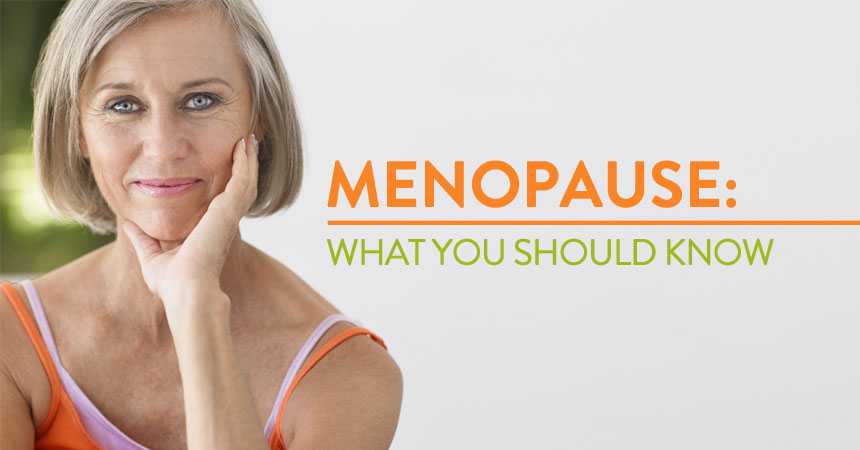
Create marketing funnels in minutes!
Your page? Unpause your account to remove this banner.
Hormonal Changes with Amy Jaramillo

www.bodyscience.life - 305.901.5888 - info@bodyscience.life





Improve the symptoms of Menopause by rebalancing out of control hormones. Stop suffering with weight gain, hot flashes, difficulty sleeping, anxiety, dry skin and declining libido
We are a fully licensed medical clinic with expertise in the spectrum of age-related women’s health issues.
Causes
During menopause, a woman's ovaries stop making eggs. The body produces less of the hormones estrogen and progesterone. Lower levels of these hormones cause menopause symptoms. Periods occur less often and eventually stop. Sometimes this happens suddenly. But most of the time, periods slowly stop over time. Menopause is complete when you have not had a period for 1 year. This is called postmenopause. Surgical menopause takes place when surgical treatments cause a drop in estrogen. This can happen if your ovaries are removed. Menopause can also sometimes be caused by drugs used for chemotherapy or hormone therapy for breast cancer.
Symptoms
Symptoms vary from woman to woman and can be worse for some than others. They may last 5 or more years. Symptoms may be worse for some women than others. Symptoms of surgical menopause can be more severe and start more suddenly. The first thing you may notice is that periods start to change. They might occur more often or less often. Some women might get their period every 3 weeks before starting to skip periods you may have irregular periods for 1 - 3 years before they stop completely.
Common symptoms of menopause include: Menstrual periods that occur less often and eventually stop, Heart pounding or racing, Hot flashes, usually worst during the first 1 - 2 years, Night sweats, Skin flushing, Sleeping problems (insomnia)
Other symptoms of menopause may include: Decreased interest in sex or changes in sexual response, Forgetfulness (in some women), Headaches, Mood swings including irritability, depression, and anxiety, Urine leakage, Vaginal dryness and painful sexual intercourse, Vaginal infections, Joint aches and pains, Irregular heartbeat (palpitations)

Understanding the cause of your anxiety and depression
Mood results from a delicate balance of brain messengers (ie. Neurotransmitters NTs) and reproductive hormones RH’s. This symphony of chemicals make up happiness, sadness, anxiety and depression. An imbalance of these chemicals is one of the leading causes of anxiety disorders, mood disorders and depression. Moodiness and decreased desire to build social relationships are the result. Improve the treatment of your mood disorder by understanding the cause.
Digestion issues including Irritable Bowel Syndrome (IBS) and Leaky Gut Syndromes (LGS) are associated with mood disorders since they can prevent your body from getting the ingredients needed to make both NT’s and RH’s.
Testing
To understand your body’s Brain Messengers and the steps required to rebalance them we will identify:
Program and Pricing
This is a three-month program during which time you will be completing your testing and meeting with a mood specialist for interpretation of your results. Your plan of care will be carefully guided by Dr. Bruce S. Rubin, a neurologist with extensive training and experience in this area.

Take control of your migraines
Migraines are the most common headache disorder bringing people to their doctor. Although they are thought of as a severe pounding headache associated with nausea and vomiting, migraines can present differently from one person to another. Sometimes a migraine is so bad you may need to go to the ER, other times the only thing you can do is lay in a cold dark room, often times it could be a just a mild headache associated with a bad mood.
Migraine pain can be incredibly debilitating. There are many medications aimed at reducing the pain but migraine days typically become wasted days and most suffers don’t feel much like working or socializing even after taking them. Once a trigger occurs, you can take medications before the migraine to try to avoid the headache or during in hopes of reducing it, however, these medications may not be very effective if your migraine triggers have not been eliminated.
“The reason medications often reduce your pain but headache days still feel lousy is because you have not eliminated your migraine trigger.”
“The key is to migraine relief is to identify your unique migraine triggers and eliminate them!”
Although medical migraine experts do not fully understand the cause of migraine, we can agree that they result primarily from two things: genetics and environmental triggers. We have known about the genetic component for centuries since many migrainers have a family member who suffers with them as well, the ”trigger link” had been less clear, however. This is because common triggers such as chocolate, cheese and caffeine are well studied but migraines can persist even when you avoid all of the common causes and there-in lies the link between your genetics and your unique triggers otherwise known as your personal migraine activators (PMAs). Have you ever wondered why you get a migraine when you have avoided all of the common triggers? Until recently, the concept of “unique” or “hidden” activators was unknown. We now understand that coded into your DNA are personal migraine activators (PMAs) and these PMAs are different from one person to another!
“Knowing your PMAs (i.e. the things that are toxic to your body) is one of the most powerful tools in your migraine management.”
Treatment for migraines not really about medications, it’s about avoiding PMAs. Some culprits, like weather, are unavoidable however most PMAs can be controlled. Common personal migraine activators (PMAs) include hormonal imbalances (often seen during menstruation in women, testosterone fluctuations in men) as well as medications, chemicals and foods that can be toxic uniquely to you. The bottom line: certain hormonal imbalances, chemicalsand foods are uniquely TOXIC to your body and migraine is often your body’s way of letting you know that it does not like what you are exposing it to.
“Reducing migraine episodes comes down to knowing and avoiding your PMAs.”
HOW CAN YOU DECRESAE YOUR RISK OF GETTING A MIGRAINE? The first order of business is to modify your risks and this is accomplished by (1) determining which PMAs are coded into your DNA including hidden food intolerance and allergy activators (2) identifying possible hormone imbalances. At Body Science, we are experts at testing for and uncovering your unique personal migraine activators (PMAs). We have created an incredibly powerful genetic and hormone identifier panel to give you the information you need to understand your PMAs and avoid them. Our medical director, Dr. Bruce S. Rubin, is a board certified neurologist. He has been conducting research and treating migraines for close to 20 years. Dr. Rubin is also a member of the American Academy of Antiaging Medicine.
“Your genetics and hormone levels in combination with your unique PMAs determine how and when you get your next migraine.”
“Understanding your personal migraine activators (PMAs) can significantly reduce the number of migraine days and pain as well as to improve the efficacy of your current medications.”
Although prescription medications are often helpful, they are fraught with side effects. In collaboration with the team at Body Science, Dr. Rubin has developed the family of Migraine Relief all natural products which have been shown to significantly decrease the frequency of migraine attacks. This scientifically proven group of supplements is made in the USA with all natural ingredients. The do not cause side effects or interfere with other medications and have helped thousands of patients.

Achieve a healthy balance between Progesterone, Estrogen and Testosterone. Improving the balance of your hormones will reduce hair growth on your face and body, allow you to lose weight, reduce moodiness and irritability, decrease the risks associated with uncontrolled PCOS including diabetes.
We are a fully licensed medical clinic with expertise in PCOS and Women’s Health. We have been helping women improve their PCOS symptoms and enjoy the life they want without estrogen and testosterone getting in the way.
PCOS: Polycystic ovary syndrome
Polycystic ovary syndrome is a condition in which a woman has an imbalance of a female sex hormones. This may lead to menstrual cycle changes, cysts in the ovaries, trouble getting pregnant, and other health changes.
Causes
PCOS is linked to changes in hormone levels that make it harder for the ovaries to release fully-grown (mature) eggs. The reasons for these changes are unclear. The hormones affected are:
Normally, one or more eggs are released during a woman's cycle. This is known as ovulation. In most cases, this release of eggs occurs about 2 weeks after the start of a menstrual period.
In PCOS, mature eggs are not released. Instead, they stay in the ovaries with a small amount of fluid around them. There can be many of these, however, not all women with the condition will have ovaries with this appearance.
These problems with the release of eggs can contribute to infertility. The other symptoms of this disorder are due to the hormone imbalances.
Most of the time, PCOS is diagnosed in women in their 20s or 30s, however, it may also affect teenage girls. The symptoms often begin when a girl's periods start. Women with this disorder often have a mother or sister who has similar symptoms.
Symptoms
Symptoms of PCOS include changes in the menstrual cycle, such as:
Other symptoms of PCOS include:
The development of male characteristics is not typical of PCOS and may indicate another problem. These changes may include:

The hidden cause of Low Testosterone
Above average Cortisol usage (i.e. overstress) leads to adrenal fatigue and is the primary cause of low Testosterone in younger men. In order to correct decreased Testosterone in this case it is typically not advisable to prescribe or use Testosterone as the disrupted cortisol pathway can often times:
Testing
To understand your body’s Cortisol and its impact on your Testosterone, we will be measuring:
Program and Pricing
The average time to correct the overuse of cortisol is three to six months. During that time, you will be completing your testing and receiving the treatment indicated. Your treatment will be tailored to your degree of Cortisol imbalance which has seven distinct stages.
A leaky gut leads to daily bouts of inflammation that spreads throughout your body making cells and organs sick. One of the most common symptoms is weight gain which occurs in a majority of people who suffer with Leaky gut.
Step 1: The Trigger
Leaky gut typically starts with on-going exposure to foods that cause your small intestines to become inflamed each time you eat them. Certain medication, anti-biotics and/or infections can also cause leaky gut which food sensitivities then make worse.
Can Leaky Gut Syndrome be Corrected? Absolutely! Intestines are great at repairing but only if your trigger foods are eliminated. Once tested, a personalized elimination diet will be created for you. After 12 weeks you will be instructed on how to rotate some of those foods back in. A corrective medical food may be recommended and/or a digestive support including enzymes and probiotics if indicated by your results. An intestinal detox and anti-biotic focused pro-bioic may also be recommended if medications or infections were involved in causing or worsening your leaky gut. Can I get Leaky Gut if I eat “Healthy Foods”? Yes! Foods considered to be healthy may not be healthy for you. Common “healthy foods” that may be triggering your Leaky Gut include:
Step 2: The Opportunist
There are trillions of bad bacteria in that live in your gut. They take advantage of inflamed intestines which are the perfect place to dig and hide once the walls become vulnerable. They tear open the delicate gap junctions that hold your intestinal cells together.
Step 3: Genetics Determine Your Microbiome
The microbiome (good bacteria) in your gut is unique, in-fact, no two people have the same diversity of commensal bacteria which is the “unique fingerprint” of your digestive tract. That is what determines which foods get digested properly and which become sources of inflammation.